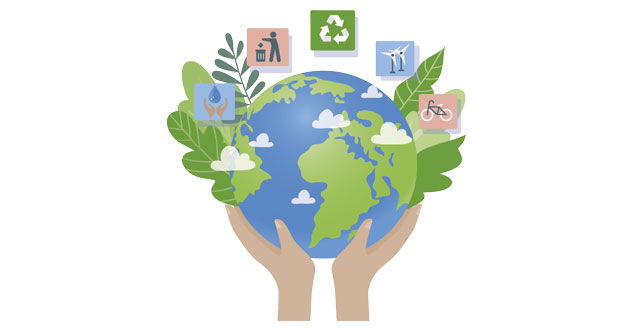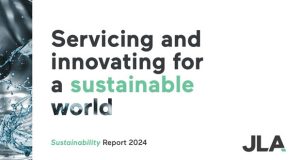Sustainability is a huge priority for the FM sector, whether developing energy management strategies, increasing recycling or investing in renewables. But there is a broader definition of sustainability where FMs have the opportunity to deliver social value in providing a built environment that contributes positively to wellbeing and productivity. How can the sector ensure that sustainability remains a focus going forward despite the set-backs of 2020?
 SUSTAINABILITY EXPERT’S VIEW
SUSTAINABILITY EXPERT’S VIEW
SUNIL SHAH,
DIRECTOR AT ACCLARO ADVISORY & SFMI
Whilst COVID has had a devastating impact for organisations and many individuals, it has also demonstrated the ability for society and industry to drive through fundamental changes quickly and to act on knowledge and data rapidly. This has been none more apparent than in the property sector. The pandemic has brought forward a number of trends affecting the workplace and forced organisations to introduce different approaches, with areas such as flexible working, net zero, mental health, biodiversity and social mobility all being major discussion items supported by Government policy throughout the year. While these subject areas may appear to be separate, they are all interrelated.
Sustainability for the FM sector has been defined through 23 criteria* which is why we should be looking at how to build it into a wider business strategy. Staff can help drive changes in business, customers (internal or external) are requiring improved delivery and regulation is looking for greater disclosure.
SFMI research this year has shown that the FM sector has the capabilities to support organisations to deliver on their environmental, social and governance goals and ambitions. However, procurement models are often focussed on a silo-based cost driven approach – leading to outsourced providers relegating their sustainability based strategic offerings to additional costed services, in order to remain competitive.
This suggests that the base service and cost model hasn’t changed since the days that led to Carillion’s demise. This failure isn’t down to the procurement team or the FM teams, but driven by the culture and attitudes of the procuring organisation. However, we are seeing gradual changes in attitudes, and the pandemic has helped escalate this progress, which bodes well for the FM sector as we move towards a different level of service provision.
Ultimately, the model is to move towards a responsible business approach whereby shared opportunities, clearly aligned with the core values of the parties involved, are driven though flexible agreements into the delivery of services. Costs and benefits can be implemented, measured and communicated in a transparent manner – with sustainability initiatives ranging from the provision of low carbon services or the employment of long-term disadvantaged individuals. Such measures are not always numerical, but will demonstrate clear value and benefits to the parties involved.
The role for FM in this process involves aligning services with the core values of the business to demonstrate where real value can be delivered and measured. This cannot be done in silo’s within departments, service lines or sustainability subject areas. Instead, it requires a more holistic approach to build sustainability into the culture of a business. Board members and Senior Management already get this; where it often becomes stuck is within the implementation model through the middle management tier who are driven by more traditional criteria. Going forward the way the FM sector takes the lessons learnt from their successes last year to continue to deliver sustainability goals 2021 will be crucial. I hope that they can.
*www.acclaro-advisory.com/wp-content/uploads/2020/10/SFMI-23-Criteria-Report_Sept2020_V1.0.pdf
 FM PROVIDER’S VIEW
FM PROVIDER’S VIEW
DANIELA EIGNER,
ENVIRONMENTAL SUSTAINABILITY MANAGER, THE CHURCHILL GROUP
Though some areas of sustainability may have taken a hit in 2020, it wasn’t all bad news. Many organisations were able to report carbon reductions and lowered energy use thanks to the full or partial closure of buildings. The lockdown also saw a lot of people shopping locally in a sustainable manner.
Sustainability will certainly remain a focus for lots of businesses, and the big challenge may be balancing that among the more pressing issues of the return to work and ensuring occupant safety through high-quality hygiene processes.
Some of the knock-on effects of the pandemic may have a side impact on sustainability. For example, workplaces may choose to install automatic lights that switch off when a room is empty. Though the primary reason for installation is to remove a touchpoint, they will also help reduce energy usage. Sustainable hygiene may be a bit trickier. Before the pandemic, cleaning firms were able to focus on and invest in chemical-free cleaning agents and recyclable packaging. That became a low priority during COVID as the emphasis had to be on using products that did the best to combat the chance of transmission.
Now is the time for companies to take another look at marrying up the effectiveness of cleaning products with their sustainability attributes. That does not mean compromising on hygiene; rather, reviewing supply chains and researching for the best options on the market.
FM also has a big role to play in delivering sustainability through social value.
Wellbeing was already a big trend in the built environment prior to last March. Now it’s arguably the top priority, along with hygiene. Working from home has put the office under the microscope. Employees are questioning why they need the office if they can do the same job from their home, and businesses are re-evaluating the purpose of the office.
With all research pointing to a hybrid working week for a lot of the UK workforce, it is essential that workplaces are set up so that occupants can be at their happiest, healthiest and most productive in the time they will spend in the space.
FMs have demonstrated throughout the pandemic that they are key consultants when it comes to the built environment and the safe operation of the workplace, whether it’s an office, shop or school.
The current lockdown presents the perfect opportunity for FMs to share their expertise. Where some businesses might be unsure about working on sustainability instead of other issues, talking about it through social value and employee wellbeing is a great way to get buy in.
Strong social value and sustainability frameworks can lead to a whole range of positive business outcomes, including talent attraction and retention, progress towards CSR objectives and building resilience into the organisation.
FM providers must look to the year ahead with great relish. If 2020 was the year that they truly demonstrated their importance in times of crisis, then 2021 can be the year that they cement themselves as vital business partners.





